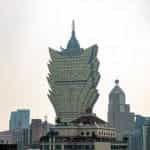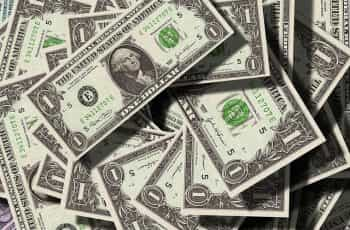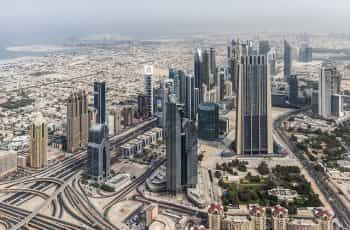China Crackdown on Macau’s Status as a Wealth-Hub in Asia
The casinos brought immeasurable wealth to Macau and transformed the city’s fortunes, but now China is taking a tough stance in a major crackdown. The entire wealth model of Macau is built on top of an infrastructure of casinos, for nearly two decades the city has become the major powerhouse in global gambling. With this prolific status came untold riches, inequality, and crime. Now the tide is turning, and the Chinese Communist Party is taking a tougher stance against the liberty and freedoms that Macau’s business elite have become accustomed to.

China has upped the ante in the regulatory war against casinos in Macau – with licenses expiring soon, the digital crackdown in Asia is gathering momentum. ©geralt/Pixabay
Given the minuscule size that Macau occupies as a geographical area in Southeast Asia, it is still incredibly surprising the wealth this small city can generate. At just half the size of Manhattan, Macau is absolutely stuffed with 35,000 hotel rooms, 30 Michelin-star restaurants, and over 25 UNESCO world heritage sites. On top of this incredible base infrastructure, Macau’s gross gaming revenues are six times larger than the Las Vegas Strip.
When looking closer into the financials, the top-line revenues in Macau soared to $36 billion in 2019, this huge haul of cash has really cemented the market dominance of Macau and made it nearly impossible for a competitor to come in and dethrone them. Looking at the closest second-place city in the gambling sector, Las Vegas made just $6 billion at the same timeframe.
The problem that is now being realized around the country is just how overly reliant Macau has become on gross-gaming revenue as its primary source of income. This lack of diversification has made the city’s child industries such as financial services, leisure, and hospitality particularly vulnerable to government red tape. Unfortunately for Macau, it does now seem to be the case that China will impose much stricter regulations across the board than they have been doing previously.
Beijing’s Regulatory Crackdown Begins
The problem from the outside when looking at the current wealth dynamic in Macau is the stark fact that it sits at direct odds with the Chinese Communist Party’s fundamental values. Having enormous wealth in the hands of a few businessmen isn’t the way China traditionally likes to encourage economic growth. The ‘common prosperity’ messaging doesn’t align with the current situation in Macau, and when gaming licenses in Macau expire in Summer 2022, there are expected to be many operators flushed out of the market.
Talk of the government increasing the supervisory measures at casinos and imposing new laws in the city sent Macau-based casino stock prices tumbling – particularly with overseas operators where the share prices were dealt major damage. Big blue-chip American operators including Sands China and Wynn Macau were two institutions that felt the crunch particularly badly.
The challenge now for Macau will be attempting to ramp up the non-gaming elements of the value model, attracting tourists to the island through a means that doesn’t depend on casinos will be a major challenge that the industry will need to figure out. Coming to terms with the rapidly evolving regulatory environment is the crux of the issue for Macau, when it comes down to the fundamental drivers, offering gambling will always be at the heart of the Macau economy, and finding a way around that will take a lot of creativity.
The social problems are becoming increasingly prevalent too – as the city opened itself up more to casino licensing deals, there have been sharp increases in crime. Other problems have reared their heads too, the de-skilling of the workforce has been one unexpected consequence: due to young people foregoing a higher education level in favor of working in the casino sector. This in turn has created a dynamic where local businesses like retail shops are unable to compete with the gaming industry on salaries, creating a lack of staff in these important service sector jobs.
Macau to Move Beyond Gaming
The biggest casinos in Macau want to move their businesses towards areas that are not dependent on the revenues generated from gaming. In this spirit, it isn’t a surprise to see Sands and the Venetian diversify their real-estate for new purposes. These specific use cases include hoteling, restaurant management, and shopping malls.
While it is important for these casinos to move all their eggs away from the gambling economy, this does not veil over the true problems. Macau has a rich Euro-Asia history and has for many years been the central hub for tourism from the west in the Asian peninsula. Figuring out these last remaining cultural mismatches will be key to the longevity of Macau and its status as a thriving tourist hub.
On the extreme end of the debate are those that see this change in tone from the Chinese government as a thinly veiled power move to take tighter control over the gaming sector. They believe the new central bank digital Yuan being deployed to control capital outflows and the dates aligning with license expiries are no coincidence – what will come of this is a mystery that remains to be seen.



